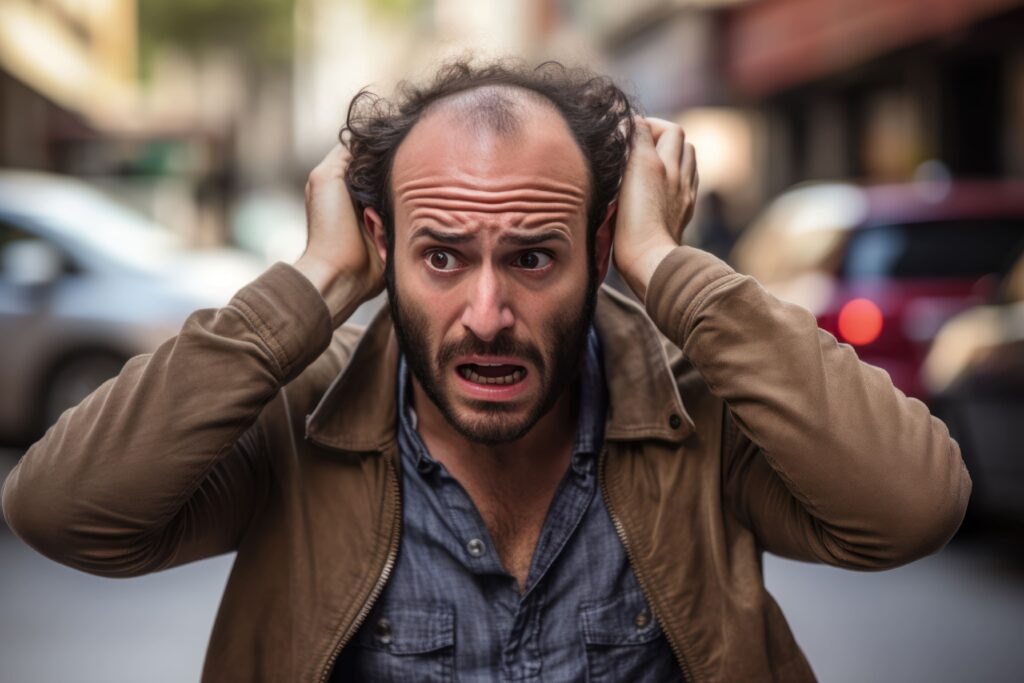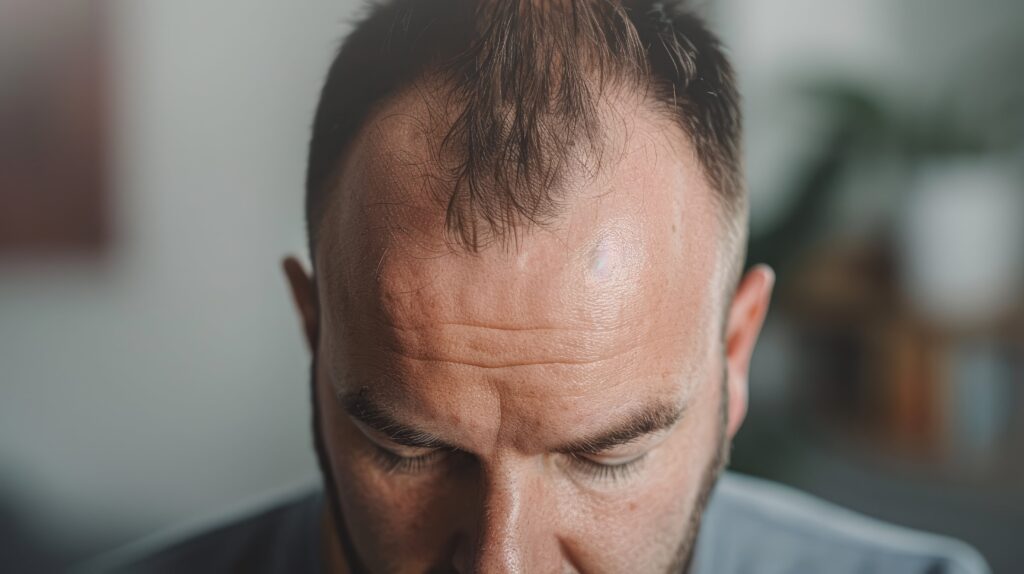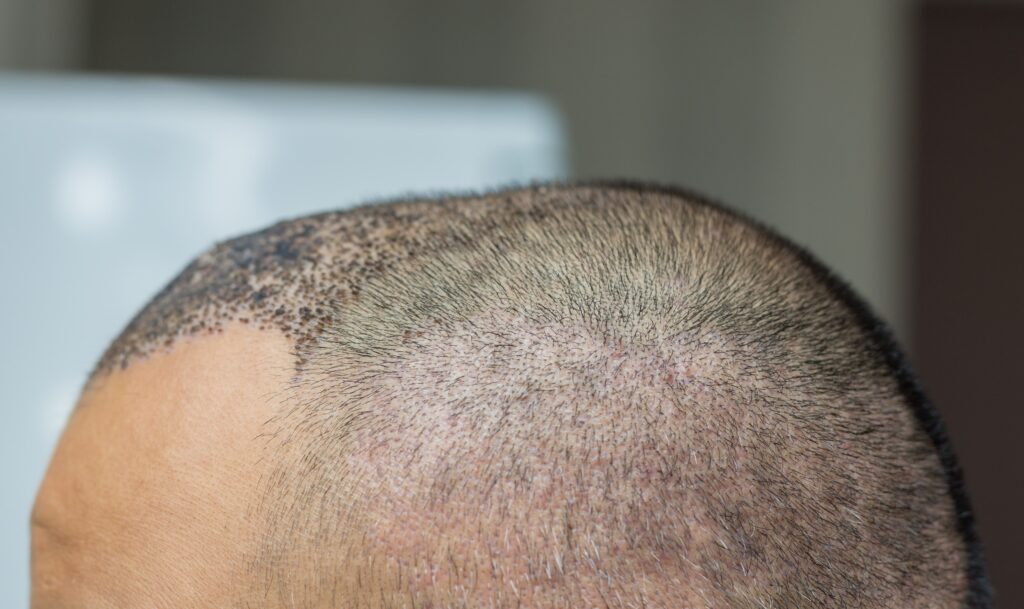Hair loss may not be a life-threatening condition, but it can negatively affect a person’s self-image. Fortunately, hair transplant surgery offers a long-lasting solution for hair restoration. However, deciding to get a hair transplant surgery can be a scary journey, and one of the most popular questions we often receive is, ‘Does hair transplant hurt?’
This comprehensive guide walks you through everything you need to know about hair transplant pain, from what to expect during the hair transplant surgery to managing any potential discomfort you may feel afterward.
Is a Hair Transplantation Painful?

Thankfully, the answer to that question is no; a hair transplant procedure is not painful. The surgery is typically performed under local anesthesia, which numbs the scalp. This means you shouldn’t feel any pain during the surgical procedure.
However, this doesn’t mean there is absolutely no discomfort. Even the most minimally invasive medical procedures usually do have some slight discomfort, and hair transplant surgery is no exception.
Understanding the Procedures
There are two main types of hair transplant available: FUE (Follicular Unit Extraction) and FUT (Follicular Unit Transplantation).
FUE hair transplant involves extracting individual hair follicles from the donor area (usually the back of the scalp) using a micro punch. The surgeon extracts these extracted hair grafts and then meticulously implants into the recipient area (balding area) with minimal incisions. FUE’s minimally invasive nature and faster recovery time make it a popular choice for many patients.
With FUT hair transplant, also known as strip surgery, the healthy hair follicles are usually removed in small strips from the donor area and then divided into individual follicular units that are inserted into the affected area.
Pain & Comfort During Hair Transplantation

No matter which method you choose, hair transplant surgery prioritizes patient comfort. During a hair transplant surgery, you should not feel pain after your initial local anaesthetic injections. While you won’t feel any pain, you might feel some pressure or tugging sensations as the surgeon extracts and implants the hair follicles.
For patients who have a fear of needles, most clinics offer the option of needle-free anaesthesia. Needle-free anesthesia is a safe and effective alternative to traditional local anesthetic methods used in hair transplant procedures. The process involves delivering anesthetic medication through high-pressure air instead of needle injections. This reduces discomfort and minimizes any potential risks associated with needles.
If you stay awake during the hair transplant procedure, you are always kept as pain free and comfortable as possible with your choice of entertainment. This may include podcasts, soothing music, TV, and more. This will keep you entertained throughout the surgery and also help to keep your mind off of it.
Pain After Hair Transplantation
It might be that some patients feel a little pain after the procedure. Once the anaesthesia’s effects start to wear off, you might experience some slight discomfort in the scalp, particularly in the donor and recipient areas. However, your hair transplant surgeon will re-administer the numbing drug to minimize the discomfort, and you will feel its effect for up to three hours.
Any hair transplant pain you feel after that can be easily managed using Ibuprofen or Paracetamol with Ibuprofen. It’s important to remember that everyone experiences pain differently. While most patients report no pain, some might experience minimal discomfort. This is usually temporary and should subside within a few days.
Will Pain Affect My Transplant?

Pain shouldn’t have any negative impact on your hair transplant results. As long as you follow the aftercare instructions provided by your surgeon, your transplanted hair follicles will heal properly and begin to grow new hair within a few months.
If you experience any unusual pain or discomfort that persists beyond a few days after surgery, be sure to contact your hair transplant surgeon immediately.
Hair Transplant Side Effects
While hair transplant pain is a major concern for many patients considering hair transplant surgery, it’s important to be aware of other potential side effects. These are typically mild and temporary and include:
- Crusting around the transplanted hair follicles (which will naturally shed within a few days)
- Temporary numbness in the scalp
- Bleeding (usually minimal)
- Infection (rare but treatable with antibiotics)
- Itching
- Swelling
How Cosmedica Clinic Can Help You
At Cosmedica Hair Clinic, we are committed to providing patients with a comfortable and successful hair transplant experience. Our team of experienced surgeons, led by Dr. Levent Acar, utilizes advanced techniques like DHI and DHI Sapphire to minimize discomfort and promote faster healing.
Ready to take the next step towards a fuller head of hair? Contact Cosmedica Clinic today for a free consultation and personalized treatment plan. See our incredible hair restoration results and see what Cosmedica can do for you. We’ll address all your concerns and ensure you feel confident throughout your hair restoration journey.
